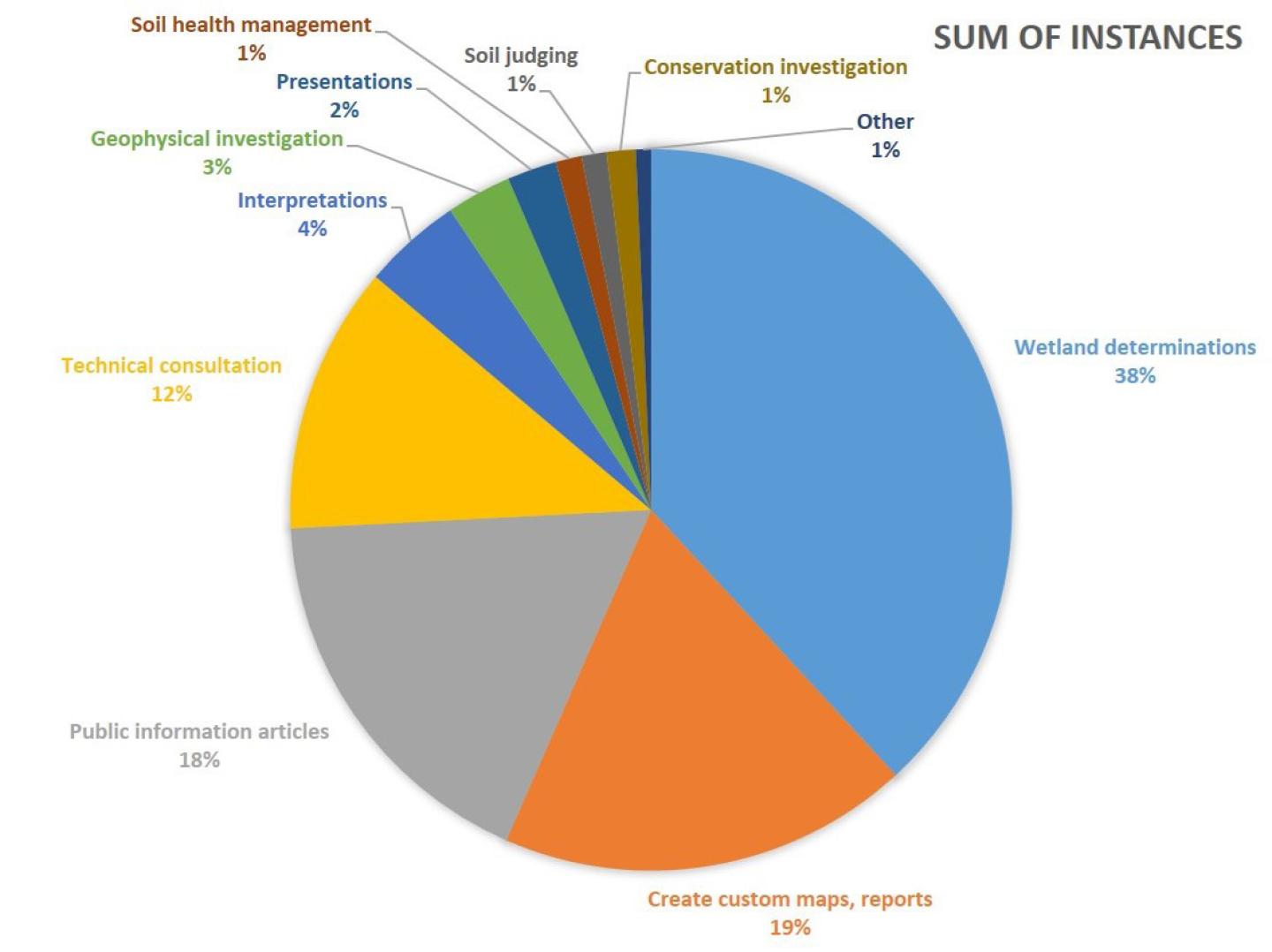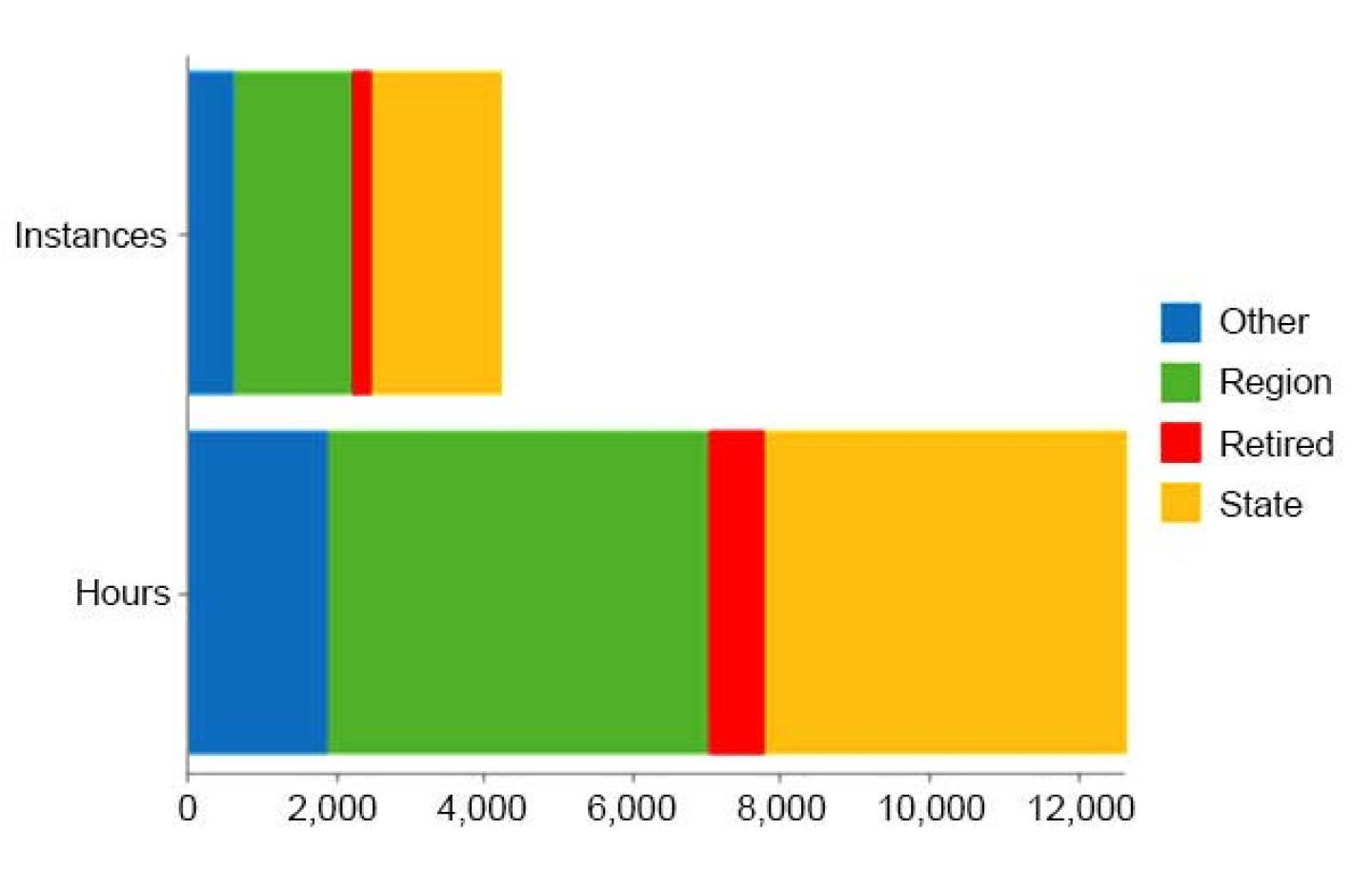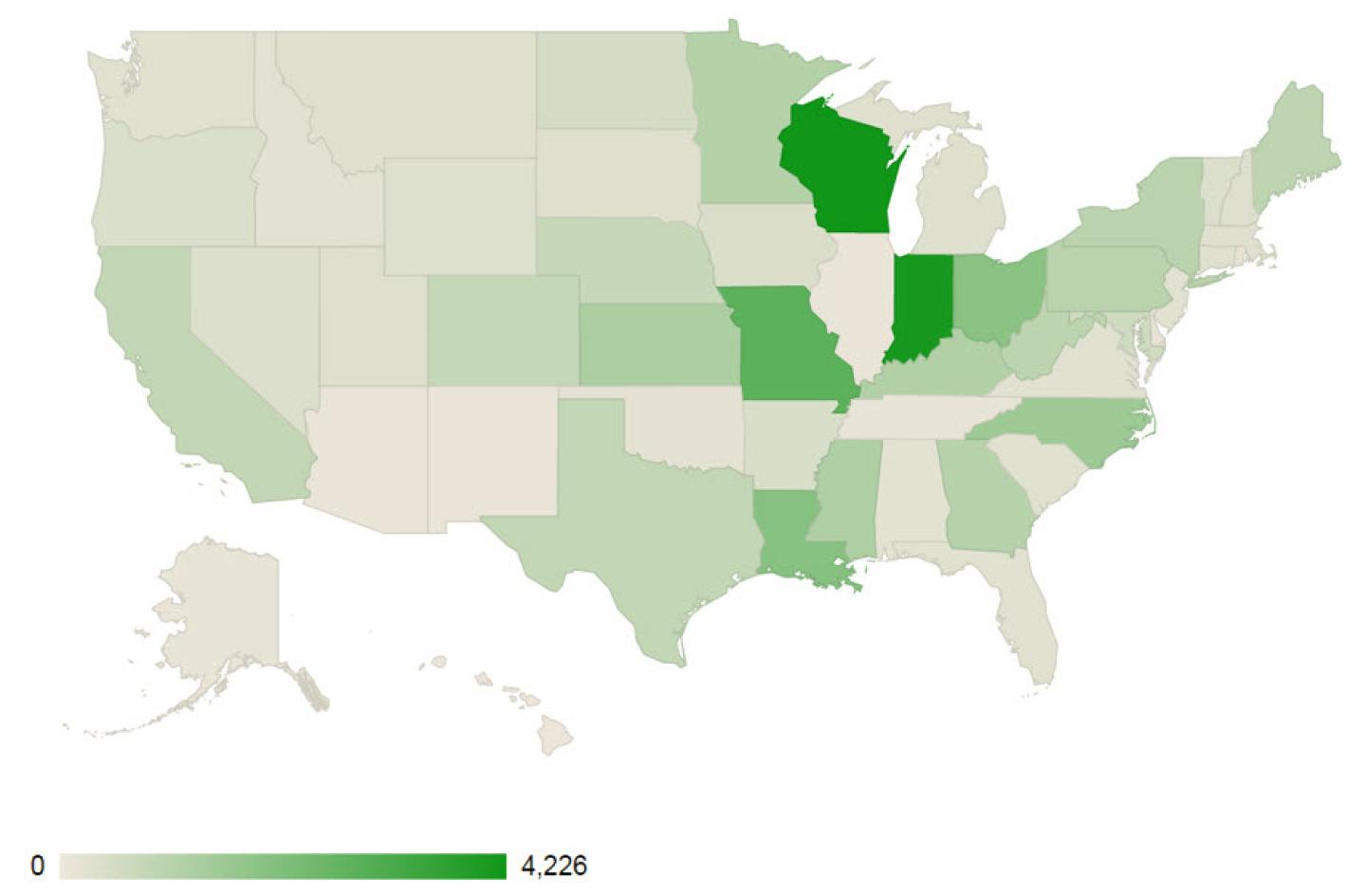Technical Soil Services - Wisconsin
Technical soil services (TSS) are the professional application of soils information, including free assistance to partner agencies, public and private, for-profit and non-profit organizations, and the general public by the TSS branch of the NRCS.
What does TSS do for NRCS and LWCDs?
- We support conservation planning through compliance determinations and reviews (both HEL and wetlands).
- We support other agency programs and initiatives, including NRI, ecological site development, and soil health investigations.
- We conduct onsite assessments for resource inventories, practice designs, and practice implementation.
- We conduct field and area office quality assurance reviews.
- We maintain official reference documents, such as the relevant sections of the eFOTG.
What else does TSS do?
- We provide general soils-related information in person, on the phone, by social media, and by email.
- We provide soils-related training to partner agencies and organizations.
- We provide support for youth education through soil judging, land judging, conservation awareness contests, and Envirothons.
- We work with you to identify and obtain the soils information you need to address your specific concerns.
- We help you find and use NRCS tools and information resources, such as Web Soil Survey and Soil Data Access.
- We work with you on unique projects that required custom analysis of soil data and information.
How do I get help with TSS?
- Contact your State Soil Scientist.
- A State Soil Scientist is assigned to every State.
- Some States also have an Assistant State Soil Scientist.
- Contact a resource soil scientist.
- They are located in national, regional, area, and field offices.
- Approximately 75 resource soil scientists provide fulltime TSS support.
- Contact a Soil Science Division staff soil scientist.
- They are located in 12 regional offices and 124 soil survey offices nationwide.
- Approximately 350 soil scientists spend an average of 15% of their time providing TSS.
Types of Technical Soil Assistance
- Area wide knowledge of Soils to assist in Easement sites
- Assistance on resolving wetland issues relating to Department of Natural Resources permits for crossings and streambank
- Data collection and analyses
- Determining Lateral Effects for Wetlands for Engineering
- Developing Soil Criteria for Conservation Planning (Resource Concern)
- Developing soil criteria to use in ranking applications
- Developing workload analysis and business plans
- Ecological Sites – data collection and analyses; review descriptions
- Farmland Policy Protection Act, LESA
- GIS (creating maps, performing analyses)
- GIS/GPS (creating maps, performing analyses, verifying easement boundaries)
- HEL and wetland compliance
- HEL/determinations/compliance/appeals
- Hydric soils list
- Important farmlands identification
- Important Farmlands list
- Liaison to other Federal, State, Local, or non-governmental agencies
- Maintain eFOTG
- Maintaining soil databases for Planning and Programs (RUSLE2, initiatives)
- Outreach (preparing/presenting informational or technical materials, Envirothon, Land Judging)
- Product publications (fact sheets, summary reports)
- Program Management and Support
- Program Management and Support (organizing annual work planning conference, developing business plan, reviewing/approving MLRA Soil Survey Office projects)
- Program Management and Support (preparing reports, drafting bulletins, supervision, performance plans and reviews, recruiting/hiring)
- Provide input for ranking
- Provide input for restoration planning and design
- Provide input for site eligibility
- Provide training to field offices on Soil Quality Test kits
- Providing soils information to internal and external customers
- Quality Assurance Reviews (Area/Field Offices)
- Receiving and presenting training
- Resource inventories for conservation planning
- Review and update soil rental rates
- Reviewing conservation practice standards
- Site-specific soil investigations
- Site-specific soil investigations (Waste Storage Facility-313)
- Soil Health Monitoring
- Soil Interpretation Training Internal and External
- Soil interpretations development
- Soil survey – initial (mapping, database, compilation, field reviews)
- Soil survey – update and maintenance (transects, database, spatial data edits, reviews)
- Soil technology development/maintenance
- Soil Training Course for Field Office and Partners
- Special studies (carbon, soil quality, other characterization studies)
- Wetland delineations/determinations/compliance/appeals
- Wetland determinations for all of the above
Wisconsin Technical Soil Service Priorities (Top 5)
1. Provide Soil Information to internal/external customers
2. Site-Specific Soils Investigations
3. Site-Specific Soils Investigations for Waste Storage Facility
4. Ecological Sites – Data collection and analysis;
review descriptions
5. Soil Training Course for Field Offices and Partners
Note in Wisconsin, there is a large difference in national dominance of wetland workload, particularly for the Resource Soil Scientist position.


- A total of 4,226 instances of TSS activity were reported in FY 2016
- A total of about 12,646 staff hours of TSS activity were reported in FY 2016

Wisconsin is ranked first in the nation with hours and instances.

